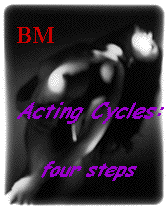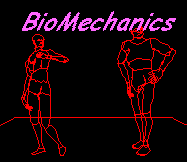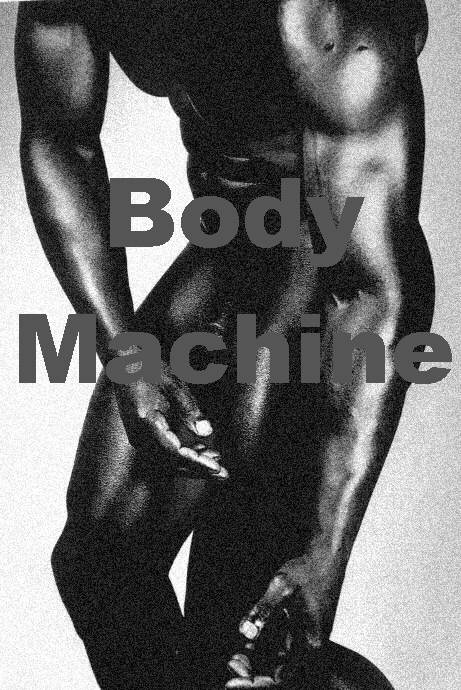| 2005 Chekhov * Farces
[ advertising space : webmaster ]
THR221 Intermediate Acting

GeoAlaska: Theatre & Film


biomechanics.vtheatre.net
Spring 2003: Don Juan

film books

virtual theatre
THR121
Fundamentals of Acting Fall 2004

ShowCases: 3 Sisters, Mikado, 12th Night, Hamlet, The Importance of Being Earnest, Dangerous Liaisons, Don Juan
prof. Anatoly Antohin Theatre UAF AK 99775 USA
 2006 *
*
stageplays *
2006 *
*
stageplays *
 HISTORICAL NOTE:
HISTORICAL NOTE:
The text in theatre was predominant for so long that we've known Theatre History, maily as a history of drama. Well, theatre began as un-scripted ritual, as we all know. Theatre doesn't have to depend on words in order to communicate with us. We call it -- theatricality (see Glossary).
The BM were born at the End of Language, Novel, at the Era of Film, globalization and needs for the new universal language as always at the times of the great historical changes and mass migrations. I shouls mention maretialism in many forms from Marxism to Objectivism. And of course the revolution in science and technology, when the matter became equal to energy (Einstein). The physicality of the world was under the centuries of rediscovery since the eraly modernity (the Age of Reason instead of the Religion). Physics became the new religion of the century. Why should we be surprised that the physical theatre came on stage? Was it a conflict with the "spiritual" -- according to the ideologies of the time, the physical was the only true form of the ideal!

12Night: Comedy & BioMechanics
new Spring 2002 THR221 Intermediate Acting (focus on biomechanics) * Comedy & Biomechanics Forum *
To understand BM, you have to understand the meaning of THEATRICALITY, which requires physicalization and visualization.
This is SHOW business, my friends. You have to show all the ideas you wish to communicate. There is no contradiction in this demand between Method and BM: one the famous lines by Stanislavsky during the rehearsals: "I don't see it!"
Working on a scene or monologue, I ask actors to go for rehearsing for "Physicality Only"!
I ask them to examine the scene from Physical POV: what is expressed, what is not? I tell them that I am Russian and I do not understand English; they have to make sure that non-English speaker can understand them. It's theatre, my friends! I can understand dance and music (both were born from theatre).
PS. Often I see that actors afraid that they acting will become "mechanical" if they go from every single movement... Well, all I can say that musicians play their scales and athletes do the specific exercises to develop arms, chest and very small movements in order to develop SMART BODY, the body which remembers it all! We do the rehearsals for the same reason; we memorize the lines and blocking. More "mechanics" we put into the show, the more organic it gets!
2003 * THR221 Intermediate Acting : new pages in BM+ @ biomechanics.vtheatre.net *
Summary
Questions

One Act Fest
The Moving Body: Teaching Creative Theatre by Jacques Lecoq -- Jacques Lecoq was born in Paris in 1921. He taught until the day before his death in 1999. David Bradby is Professor of Drama and Theatre Studies at Royal Holloway University of London. His is a director, translator, and the author of, among other books, Mise en scene: French Theatre Now.
Notes

2004 & After

Camel

Child

Diamond

Halfmoon

Wheel

Headstand

Locus

Mountain

Plow

Salutation

Scorpion

Shooting Bow

Snake

Sun Salutation

Tree
Michael Chekhov
 ...
...
|
 2009 LUL
2009 LUL





























 & thr blog
& thr blog


 2004 project -- looks like I have to spend a lot time before the yoga warmups can be incorporated. Descriptions, functions, order. It took 90 min to introduce it in class (workshop). I can't spend more than ten minutes of class time for warmups; a must before presentations.
2004 project -- looks like I have to spend a lot time before the yoga warmups can be incorporated. Descriptions, functions, order. It took 90 min to introduce it in class (workshop). I can't spend more than ten minutes of class time for warmups; a must before presentations.















